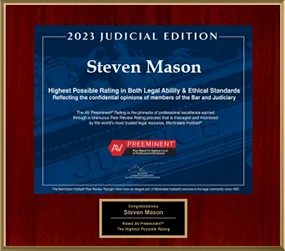Dividing Military Retired Pay During Divorce

Up until 1982, a person divorcing a military servicemember had no right whatsoever to any share of their ex-spouse’s retired pay in most cases. The passage of the Uniformed Services Former Spouses Protection Act (USFSPA) in that year granted state courts the right to divide a servicemember’s retired pay as part of a divorce. If you are intending to initiate divorce proceedings against your military spouse, know that in most cases, you are entitled to a portion, and you may use the court to obtain it.
Busting Myths
There are several persistent myths about the USFSPA. Contrary to popular belief, the Act does not specifically grant a former spouse any portion of a servicemember’s retired pay. Rather, it empowers state courts to do that, and empowers the U.S. Department of Defense to enforce them. Florida is an equitable distribution state for purposes of property division, meaning that property will be divided in the most equitable way, rather than 50-50.
In addition, it is common to believe that the “10/10 Rule” means only marriages of a certain length are eligible for divided retirement pay – however, the reality is that the Rule only governs the method of payment. A marriage that lasted over 10 years and included at least 10 years of service is one where a servicemember’s former spouse can receive their portion directly from the Department of Defense. A spouse divorcing after a shorter marriage can simply receive their payments directly from their ex-spouse instead.
Marital Property?
If a state court holds that you are entitled to a portion of your former spouse’s retired pay, the next step is to determine the appropriate amount. The main question asked in doing so is how much of the retired pay counts as marital property. In an equitable distribution state like Florida, a divorce means that all of the assets and debts acquired during the marriage will be divided as fairly as possible. If one spouse receives a portion of the other’s retired pay, it must be offset by granting appropriate assets to them.
It is important to keep one more federal statute in mind as you file your petition: the Servicemembers’ Civil Relief Act (SCRA) allows certain civil proceedings – divorce included – to be postponed during the period of a servicemember’s deployment. The postponement will generally last up to 60 days after return from deployment, but every case is different.
Contact A Hollywood, FL Military Divorce Attorney
Divorcing a military servicemember means dealing with details not required in a civilian divorce. If you have questions about the process, a Hollywood military divorce attorney from the Law Offices of Steven A. Mason, P.A. can help to get them answered. Call our office today to speak to an attorney.
Source:
dfas.mil/garnishment/usfspa/legal/






















